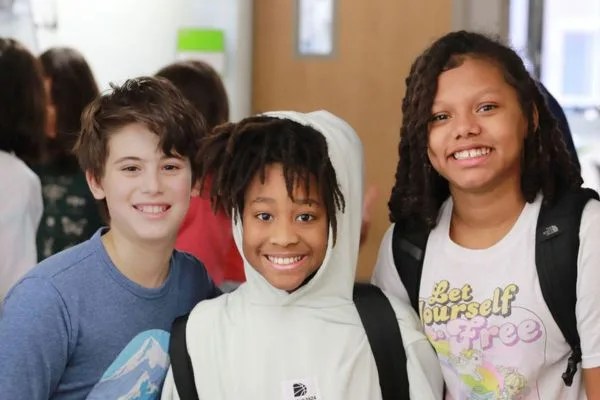Many parents of special-needs children appear to parent with grace, balance, and energy. In addition, they seem remarkably stress-free and organized.
How, in the face of all of these challenges and more, do they keep it together? What habits do they embrace that allow them to be highly effective parents for their children?
1 They are proactive and advocate for their children and educate others.
Parents become experts about their children and their needs. They conduct ongoing research; ask questions of therapists, doctors, specialists, and other professionals; and keep an organized binder full of notes and important information. They create and add to their at-home special needs libraries. They are knowledgeable about the vernacular, treatments, and services. They are well-versed in the state and federal laws that regulate services for their children.
Because of their knowledge, parents are effective educators of their child’s faculty and staff. They are powerful advocates for treatment, services, and support in and outside of school.
2 They maintain a sense of “normalcy” within the family.
Effective parents realize that although everyone in the family is affected by their child’s disorder, they are not defined by it.
Parents work to ensure that siblings have childhoods and do not take on adult responsibilities. They encourage siblings to spend time with their friends.
Parents are proactive about training other family members, friends, and sitters about how to care for their child so that they can have time for themselves — individually and as a couple, perhaps going out on weekly dates. They also spend time in the company of other adult friends.
3 They take care of themselves.
Parents nurture their needs, and recognize that doing so is important for themselves as well as their children. Effective parents address themselves holistically, meaning they take care of their physical, emotional, psychological, and spiritual needs.
They eat nutritious, unprocessed food and don’t skip meals. They make sure their bodies are properly hydrated.
They schedule time for regular exercise, by themselves or with friends. They engage in activities that offer creative or intellectual enrichment.
4 They manage their stress.
Effective parents are intentional about reducing stress in their lives by setting time aside each day to promote calm and centering. They adopt practices such as prayer, deep breathing, and meditation to replenish their inner reserves. Rebecca, whose son who is autistic, says, “When in doubt, I choose grace, to forgive people for letting me down, or for rejecting my son, for whatever reason.”
When parents lead lives that are stress-free and balanced, all family members, especially children, win. Research by the Gottman Institute supports that children fare better emotionally, socially, and academically when parents manage their stress properly.
5 They make rest a priority.
While any parent can tire in their parenting responsibilities, parenting a child with special needs can elevate fatigue to a whole different level. Sometimes, parents don’t realize the extent of their exhaustion. I didn’t. My child’s physical therapist pointed this out to me.
Effective parents realize the importance of getting to bed as early as possible, or taking naps to offset the sleep they lose due to their child’s irregular sleep patterns — up and down throughout the night, late to bed, or early to rise.
6 They surround themselves with energy givers.
People are either energy zappers or energy givers. Effective parents opt to spend time in the company of people who lift them up, make them feel confident, positive, and happy. They realize energy givers help them to feel energized, inspired, and motivated. Parents of special-needs children appreciate and need this energy.
7 They have a support group.
Parenting a child with special needs can be lonely; however, there is no need to be alone in the journey. Effective parents are part of or have created a group of parents whose parenting journeys are similar to theirs.
Christy, a single mother of a child with mental health issues shares, “I’ve found that meeting and sharing with people who have raised children with similar issues helps me. They understand what I deal with without me having to explain it. Their support helps me to be calm when I’m with my child.”
Judy M. Miller is a mom to four fantastic kiddos — three with special needs. She is the author of the parent guide “What To Expect From Your Adopted Tween.”





















